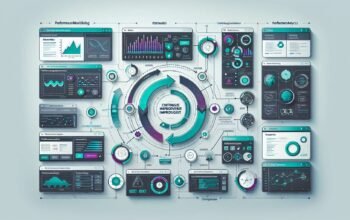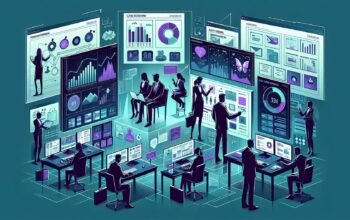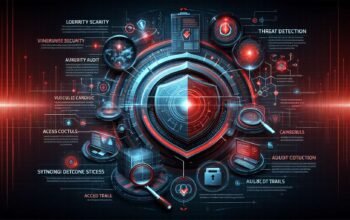It’s 2 PM and you can’t decide what to have for lunch. Not because you’re not hungry. Because your brain has already made 47 decisions today and it’s just… done.
Which framework? What architecture? How to name this variable? Should this be a class or a function? Where does this file go? What testing strategy? Which git branch convention? How to handle errors? What about logging? Security? Performance?
By mid-afternoon, you’re mentally exhausted. Not from coding. From deciding.
Welcome to decision fatigue, the silent thief that steals your mental energy one choice at a time.
Why every day feels like running a marathon
Developers make an obscene number of decisions every single day. Some studies suggest knowledge workers make thousands of decisions daily. And each one costs mental energy.
It starts before you even open your IDE. Which task to tackle first? Which messages need immediate responses? Should you join that meeting or ask for notes? Coffee first or dive straight in?
Then you start coding. Should this be async? What should this function return? How to handle null values? What if the API fails? Should you add validation here? What’s the edge case? Is this the right abstraction?
Every line of code is a series of micro-decisions. By lunch, your decision-making capacity is depleted. By end of day, you’re making choices on autopilot, taking shortcuts, or just… avoiding decisions entirely.
The cost compounds
Decision fatigue doesn’t just make you tired. It degrades the quality of every subsequent decision.
That elegant solution you’d have seen at 10 AM? At 4 PM, you don’t see it. You take the first approach that works, even if it’s messy. You skip writing tests. You push code you know could be better.
You become more impulsive. More likely to take risky shortcuts. More irritable in code reviews. That PR you’d usually give thoughtful feedback on? Now you just click approve.
Or you swing the other way into analysis paralysis. Your exhausted brain can’t evaluate options anymore, so it just… freezes. You stare at the screen, unable to commit to any choice.
The irony? Decision fatigue makes you less decisive, which means decisions take longer, which causes more fatigue. It’s a vicious cycle.
Why developers get hit harder
Software development is essentially professional decision-making. Unlike jobs with clear procedures and established workflows, coding is constantly presenting new problems that need novel solutions.
There’s rarely one obvious right answer. Every choice involves trade-offs. Should you optimize for readability or performance? Flexibility or simplicity? Speed of development or long-term maintainability?
Add in the constant context switching between projects, the interruptions from Slack, the meetings where you need to engage and decide, the code reviews where you’re evaluating others’ decisions…
By the time you’re trying to figure out dinner, your brain has nothing left.
Protecting your mental bandwidth
You can’t eliminate decisions. But you can be strategic about how you spend your decision-making energy.
Automate the trivial
Use linters and formatters to eliminate formatting decisions. Adopt team conventions for file structure, naming, and architecture patterns. Let tools handle the bikeshedding so your brain can focus on real problems.
Steve Jobs wore the same outfit every day to eliminate clothing decisions. You can do the same with code decisions. Establish defaults and stick to them.
Front-load important decisions
Your brain is sharpest in the morning. Tackle architecture decisions, complex problem-solving, and strategic planning early. Save routine tasks for when your mental energy is lower.
Don’t start your day with email or Slack. Start with your hardest problem. Make your important decisions before lunch.
Batch similar decisions
Instead of switching between code reviews, bug fixes, and feature development throughout the day, batch them. Spend a focused block on code reviews, then switch to development.
When you’re in “review mode,” your brain doesn’t have to keep reloading context. Each subsequent decision in the same domain costs less energy.
Set decision deadlines
Give yourself a time limit for decisions. You have 15 minutes to choose an approach, then commit. Not because 15 minutes gives perfect information, but because avoiding decision paralysis preserves energy for the next decision.
Most decisions don’t need deep analysis. They need good enough direction and momentum.
Build decision frameworks
Create mental models for recurring decisions. When should you extract a function? When should you add abstraction? When should you optimize?
Having frameworks means you’re not making every decision from scratch. You’re pattern-matching to principles you’ve already established.
Take real breaks
Your decision-making capacity replenishes with rest. But not “scroll Twitter while thinking about code” rest. Actual rest. Walk. Eat away from your desk. Close your eyes for 10 minutes.
A 15-minute walk restores more decision-making capacity than an hour of grinding through exhaustion.
When to just stop
Sometimes the best decision is to stop deciding for the day. If you’re making sloppy choices, introducing bugs, or just staring blankly at code, your brain is telling you it needs rest.
That problem that seems impossible at 5 PM? It might be obvious at 10 AM tomorrow. Not because the problem changed, but because your decision-making capacity reset.
Working through decision fatigue doesn’t make you more productive. It makes you create technical debt you’ll have to fix later.
Energy is not infinite
We treat mental energy like it’s unlimited. Like we should be able to make high-quality decisions for 8 hours straight. But that’s not how brains work.
You have a limited budget of decision-making capacity each day. Spend it wisely. Automate what you can. Delegate what you should. And protect your peak hours for your hardest decisions.
Because by 2 PM, when you can’t decide on lunch, it’s not laziness. It’s math. Your decision budget is spent.
And that’s okay. Tomorrow’s budget starts fresh.







